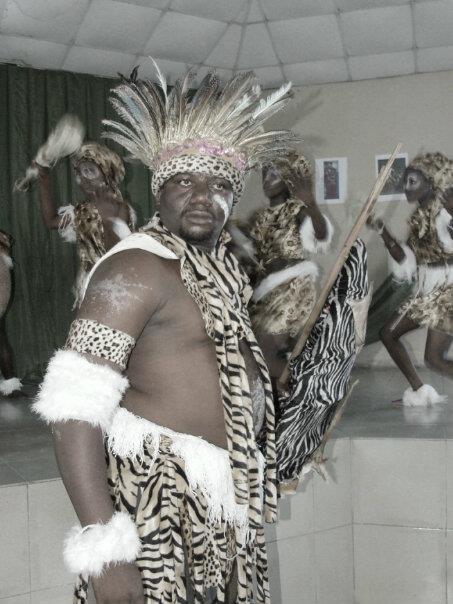Monday, 15 April 2013
Written by Tony Okuyeme
LOVE and Colours in Delphi, an experimental play written by Lekan Balogun which premiered at the Rotunda Hall, National Library, Casino, Yaba, Lagos, held theatre audience in Lagos spellbound with a feast of music, dance and drama. It also gave a new perspective to the Kurunmi and Ovoranwhen Onagbaisi story.
Produced by Legendaire Theatre in collaboration with Theatre Centrik , and directed by Williams Ekpo, Love and Colours in Delphi featured a crop of professional actors on stage and screen. Served in three-part structure – symbolic of the periods of the day and the human life cycle of morning, afternoon and night – the play embodies several metaphorical representations even in terms of character, language and setting.
For about one hour fifteen minutes, the play took the audience across various cultures, in a colourful and stimulating performance that is much like a retelling of familiar stories.
Set in Delphi, the Temple of the god. Osiris, whose ancient abode was Abydos, against the background of ritual invocation and spiritual awakening, the characters are summoned to a Feast of self-realisation, discovery, redemption and rebirth through the wedding ceremony of She Te (Jennifer Osamor), the Chinese prostitute-turned devotee and worshiper of the gods, to Kurumi (Wale Lampejo), a solider and Aare Ona Kakanfo (Field Marshall) of the mighty Oyo Empire army. But this summon, is under circumstances that will test the “readiness of the hosts and the guests, namely Cleppatra (Dada Omowunmi), the wealthy and glamorous ancient Egyptian Queen; Clytemnestra (Ebby Dickson) the classical Greek Queen, wife of Agamemnon of the Troja war fame; Ovid, the Roam elder statesman. Poet and orator; Shaka the Zulu (Agwu Martins), warrior-king and arguably the most successful and referenced African monarch in history and Oba Ovonramwen (Patrick Diabuah), the Benin monarch, whose conflict with the Imperial British forces of the late 19th Century is still much tackled about, in order for all of them to accept the fallibility of their mortality, the role of the Divine in life and the assurance “glory” for that soul who comes to the realisation of his own essence in the cosmic arrangement and, ultimately, the need to live in harmony with people and the sacredness of the Earth as a point of contact for all beings. However, as Balogun notes, “instead of seeking the purpose and the sacred need for coming together, which in itself is a sort of test of their re-incamation and after-life, the characters, each of whom represents the diversity of the human species much as they are drawn from different historical/cultural/geographical milieu, are engaged in bickering, bitterness, deceit, anger, jealousy and virulent pride, which were the bane of their previous earthly sojourn and experience.
Click Here to read more.
Reference : Compass Newspaper


Recent Comments